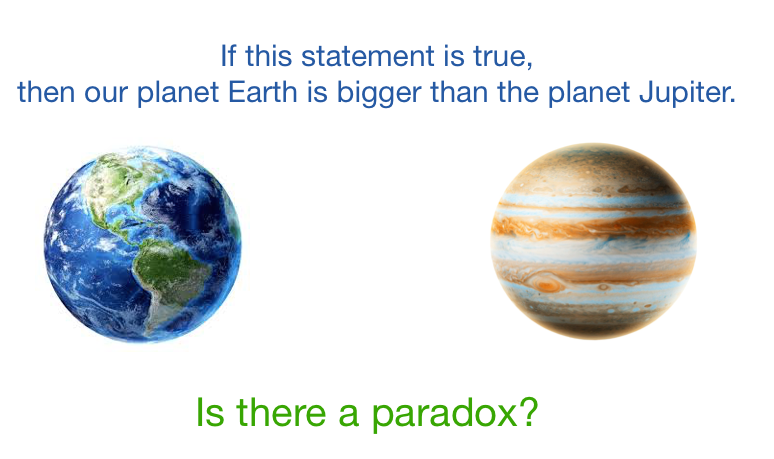Planet Paradox

If this statement is true,
then our planet Earth is bigger than the planet Jupiter.
Which of the following paradoxical results arise when we try to interpret the above sentence?
This section requires Javascript.
You are seeing this because something didn't load right. We suggest you, (a) try
refreshing the page, (b) enabling javascript if it is disabled on your browser and,
finally, (c)
loading the
non-javascript version of this page
. We're sorry about the hassle.
Relevant wiki: Propositional Logic
Let's define statements P and Q as:
Statement P : = "If this statement is true, then our planet Earth is bigger than the planet Jupiter."
Statement Q : = "Earth is bigger than Jupiter"
We can read statement P as "If P , then Q " which can be written as P ⟹ Q in proposition; logic. Therefore P is equivalent to P ⟹ Q . Thus, if P is true, then P ⟹ Q must be true, and if P is false, then P ⟹ Q must be false.
When we construct a truth table, we see that this only happens when P , Q and P ⟹ Q are all true.
P T T F F Q T F T F P ⟹ Q T F T T
This leads us to believe that Q is true. From the given sentence, we interpret that the statement "Earth is bigger than Jupiter" is true. This is a paradoxical result since a quick look at the facts tells us that Jupiter is in fact bigger than Earth. □